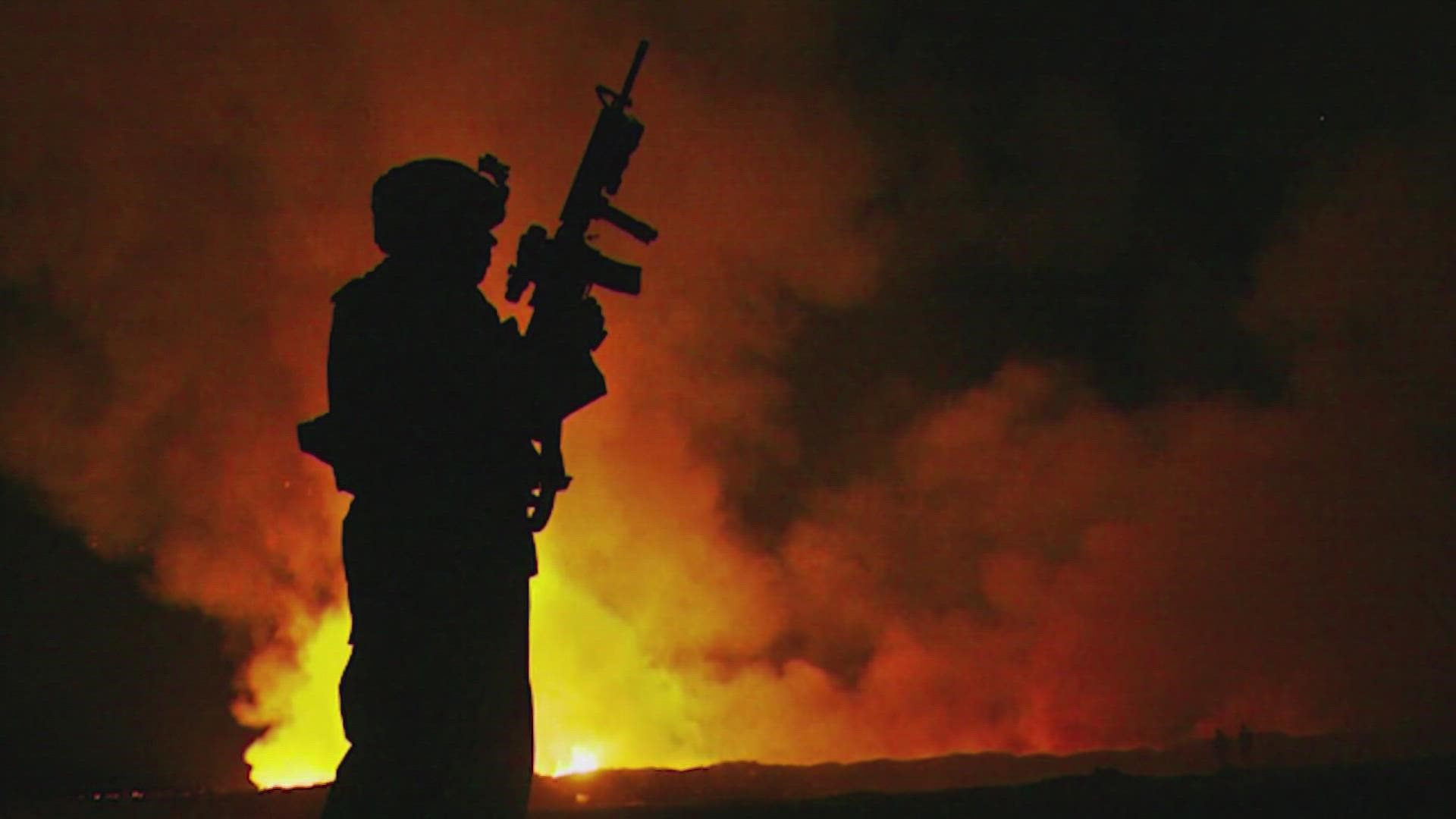SAN ANTONIO — Tashawnya Di Leo is among hundreds of thousands of veterans nationwide living with the health impacts of toxic substance exposure, such as burn pits. The 20-year Army veteran began experiencing skin irritations and a severe cough just before the COVID-19 pandemic.
“If you can picture someone who had been smoking their whole life and three or four packs of cigarettes a day, that kind of real deep cough, I have that now,” Di Leo said. “And then I also have a couple spots where on my skin that I have developed a certain type of dermatitis.”
Di Leo believes exposure to burning toxic waste while serving in Iraq is the root cause of her emerging health concerns. Meanwhile, she’s continuing to work with VA doctors on assessing the problem.
“I was on duty at least three times a week, about five to six hours at a time, cooking the feces to get rid of it, turn it into ash to dig a hole and bury it. We used fuel to do that,” Di Leo said.
The White House considers the passage of the Sergeant First Class Heath Robinson Honoring our Promise to Address Comprehensive Toxics (PACT Act) the most significant expansion of benefits and care for veterans exposed to toxic waste in more than 30 years.
President Joe Biden signed the legislation into law in August 2022 alongside veterans advocates, including the co-founders of Texas-based non-profit Burn Pits 360.
The law aims to improve health care services and distribute monetary compensation for men and women veterans dating back to the Vietnam War who confronted “airborne hazards,” which the VA refers to as contaminant or potentially toxic substance breathed in through the air.
The PACT Act strips the need for certain veterans to prove service connection if diagnosed with one of 23 conditions, therefore ideally streamlining the process for compensation and care to be provided.
VA Secretary Denis McDonough noted 2,000 an additional staff have been hired to help process the expected backlog in filed PACT Act claims.
Rosie and her Army veteran husband Le Roy Torres have been advocating for government accountability and enhanced care for veterans exposed to toxic agents for more than a decade.
Le Roy served in the Army for 23 years and deployed to Iraq from 2007-2008. Torres has since suffered an array of health issues since returning to civilian life where for 14 years he served as a Texas state trooper.
“My husband now suffers from lung injury, toxic brain injury, auto immune issues,” Rosie said.
Le Roy was let go from his position at Texas Department of Public Safety as a result of the health complications, according to Rosie.
Ineffective treatment and denial of VA benefits prompted the Torres’ to form the non-profit organization Burn Pits 360 and dedicate their time to improving post-deployment outcomes for military service members. A major part of their advocacy efforts included establishing a burn pit registry bill that former President Barack Obama signed into law in 2013.
The combination of statewide and nationwide efforts led to the passage of the PACT Act in 2022.
Rosie stressed while the legislation’s passing is monumental, there’s still more to be done to ensure the well-being of those who served their country.
“What we should be talking about is, are we delivering, is the VA and the Department of Defense delivering the right type of specialized health care for the very complex conditions these men and women are presented with.”
To learn more about the PACT Act and sing up for care and benefits, click here.

